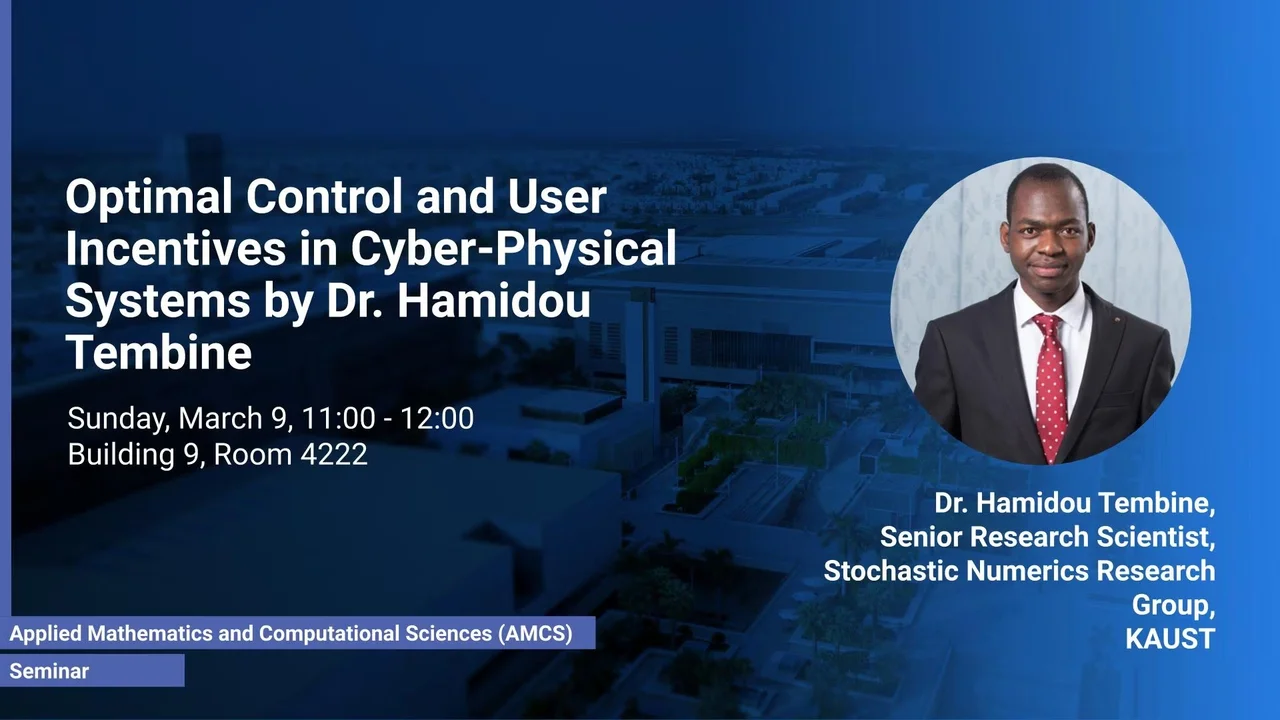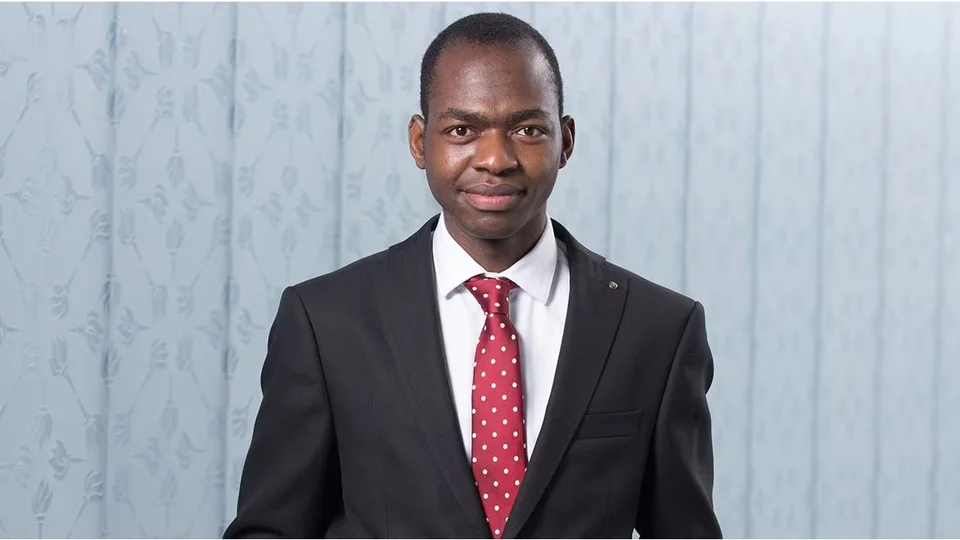
Optimal Control and User Incentives in Cyber-Physical Systems by Dr. Hamidou Tembine
In this talk, we focus on two sample applications: traffic networks and smart energy systems. We will explain how optimal control tools and user incentive designs can be used to better manage traffic congestion and address demand response in medium and large-scale systems.
Overview
Abstract
Cyber-physical systems (CPS) has drawn a great deal of attention from academia, industry, and the government due to its potential benefits to society, the economy, and the environment. As a whole, CPS refers to the next generation of engineered systems that require tight integration of control technologies, computing, and communication, to achieve accuracy, stability, performance, reliability, robustness, and efficiency in dealing with physical systems with human-in-the-loop. The spectrum of research fields relevant to CPS is very broad. In this talk, we focus on two sample applications: traffic networks and smart energy systems. We will explain how optimal control tools and user incentive designs can be used to better manage traffic congestion and address demand response in medium and large-scale systems.
Brief Biography
Dr. Hamidou Tembine graduated with the highest honors in applied mathematics from Ecole Polytechnique (Palaiseau, France) in 2006 and received his Ph.D. degree (with highest honors) in Computer Science from INRIA and University of Avignon (2009). He further received his Master's degree in game theory and economics. From 2010 to 2013, he was an associate professor at Ecole Superieure d’Electricite. Currently, he is a senior research scientist at KAUST SRI Center for Uncertainty Quantification, CEMSE division. His main research interests are learning, evolution, and games. He was the recipient of 5 best paper awards in the applications of game theory. Dr. Tembine is a prolific researcher and holds over 130 scientific publications including journals and conferences. He is the author of the book on “distributed strategic learning for engineers “ (published at CRC Press, Taylor & Francis 2012), and co-author of the book “Game Theory and Learning in Wireless Networks” (Elsevier Academic Press). Dr. Tembine has been a co-organizer of several scientific meetings on game theory in networking and wireless communications (CDC, ACC, GameSec, ECC, Allerton, NetGCoop, WiOpt, GameNets, Gamecomm). He has been a TPC member and reviewer for several international journals and conferences. He has been a visiting researcher at the University of California at Berkeley (US), University of McGill (Montreal, Quebec, Canada), the University of Illinois at Urbana-Champaign (UIUC, US), Ecole Polytechnique Federale de Lausanne (EPFL, Switzerland) and University of Wisconsin (Madison, US). He is a senior member of IEEE.
